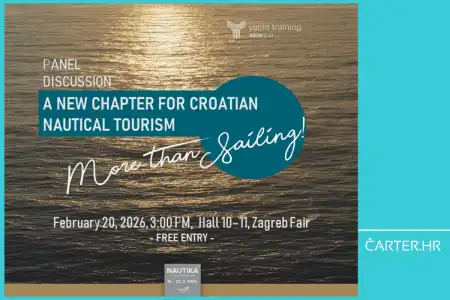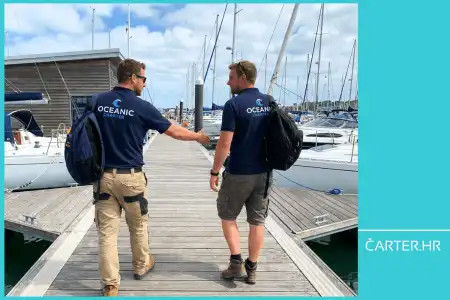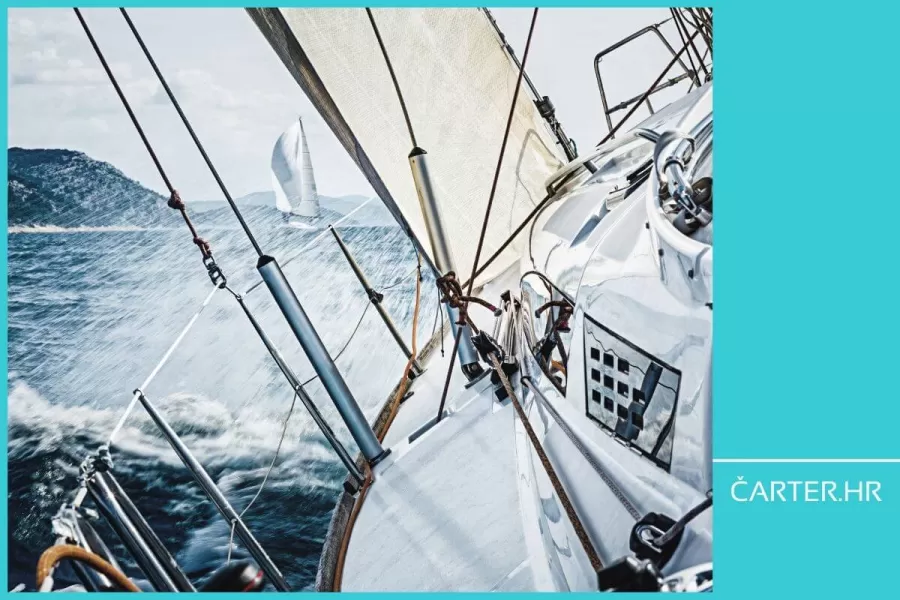
Are we in for an exciting period for our nautical charter, as the first specialised tender for this sector has just been announced? As the industry faces challenges, the government has tried to respond with a package of subsidies. The goal? Encourage green and digital transformation. But are these measures sufficient, and can they make any real difference? Ivica Žuro brings us the details and reveals the potential benefits of this tender.
The nautical charter received the first semi-specialised tender with one of the measures intended for this sector.
Although, it is hard to escape the impression, by the total allocation of funds, that nautical sector is once again being treated in a stepmotherly way because 500 thousand euros worth of support is being distributed to the entire sector.
The Ministry of Tourism and Sport has published a public invitation for co-financing projects that will contribute to raising the competitiveness of the tourism economy through the green and digital transition in tourism.
The total value of the aid is EUR 3,404.340.
The programme is implemented through five measures and in 2024 includes:
- hotels, as the most value-added facilities,
- campsites,
- family farms, which are particularly important for the development of continental tourism,
- nautics.
One of the measures applies to existing and new camps exclusively in the NUTS 2 region of Pannonia or Northern Croatia, while all others are intended for the whole of Croatia.
The public invitation is open until 15 March 2024, and applications are submitted exclusively online through the eGrađani system on the eTurizam portal (TuRiznica).
Measure E - incentive for the "reshaping" of nautical
What we are most interested in is this Measure E, so we will say more about it in the following text.
Investment in replacement and procurement of equipment related to energy efficiency measures is stimulated:
- replacement of outboard gasoline auxiliary engines with electric motors
- replacement of existing marine batteries with new models, more durable, with longer replacement intervals, and thus more environmentally friendly
- installation of solar panels and wind generators on vessels
Investments in acquiring new equipment related to environmental protection and the circular economy are encouraged, i.e. the acquisition of own mini pump-out systems for faecal tanks on vessels (mobile mini tanks with pumps) and the installation of faecal tanks on older vessels that do not have them.
Investment costs in IT and communication equipment and audio/video are also acceptable solutions (software) with the aim of:
- implementation of vessel monitoring applications that include a geolocation system and telemetry that signals possible alarms on the vessel to the application user
- implementation of applications for coordinating the vessel's readiness for check-in/check-out with the possibility of familiarising the guest with the vessel itself digitally or virtually before arriving at the charter base, which speeds up the check-in and check-out process and, at the same time, increases the guest's familiarity with by the vessel itself.
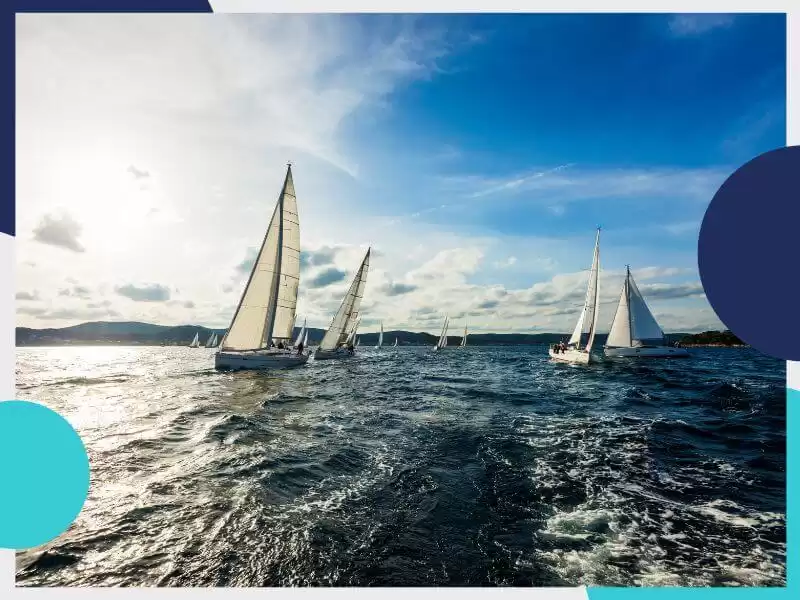
Who are eligible applicants for Measure E?
Eligible applicants must be registered for at least one year before submitting the application, have a valid Order in accordance with the Measure they are applying for, and must have at least one employed person during the previous year.
Entities that are blocked or registered as non-payers of wages cannot register.
The applicant may submit only one application under the public invitation in question.
In terms of activities, small business entities (commercial companies outside the public sector, trades and cooperatives) that have a registered activity according to the NKD are acceptable:
- 50.10 - Maritime and coastal transport of passengers or
- 50.30 - Transportation of passengers by inland waterways,
that is, existing boating facilities for excursions that have a ship registration certificate and are registered in accordance with the Ordinance on types of nautical tourism vessels as Boating facilities for excursions (NN 68/19), or if they are registered with the Ministry of the Sea, Transport and Infrastructure as a charter company (the check is carried out in the Register of Ships/eNautika) and have at least three charter vessels in their ownership or financial leasing by the Ordinance on the conditions for carrying out the activity of renting ships with or without a crew and providing the service of accommodation of guests on the vessel - NN 42/17.
Applicants and those with a registered principal or secondary activity in the Court Register are eligible:
- NKD 77.34 - Renting and leasing of watercraft or
- NKD 79.11 - Activities of travel agencies.
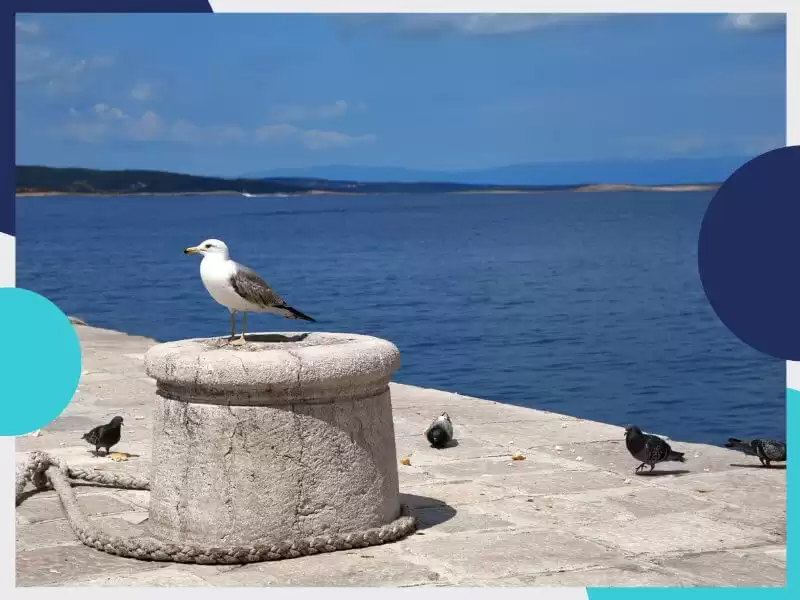
Throwing crumbs at nautical charter, or?
We have already said that we have the impression that the nautical charter is being treated stepmotherly with the allocated 500 thousand euros.
In addition to the fact that anyone alive and his uncle's brother can apply, what reinforces that impression is that the minimum amount of support is 5,000 euros, and the maximum is 15,000 euros.
So, a maximum of 100 subsidies can be divided into faecal equipment, and that's it.
Better luck next time.
For what it's worth, every euro is welcome - considering the added value and evident work on profiling domestic tourism towards a higher level of reputation, the ecological character of most of the domestic fleet, and the importance of nautical as the most resilient type of tourism that even in a pandemic generated income - with such small allocations it's like throwing crumbs their way.
Nautical guests are, per capita, the biggest generator of budget, filling it with VAT income and creating added value like few others.
In addition to the agency, skipper, cook, hostess, and everything else in the core activity, these guests spend all over the coastal cities and municipalities, buy tickets for national parks, and pay a few more euros in taxes when they come to Croatia.
With more significant support for nautical investments, they would get more money in the budget next year at a serious growth rate because a better-quality service, as a rule, also enables asking for a higher price.
Categories of trends
- News
- Sale
- Marketing
- SEO
- Web design
- Social media
- Technology
- Regulations
- Management
- Education
- Finances
- User experience
Newsletter
Sign up for the newsletter and receive the latest trends and tips straight to your inbox

